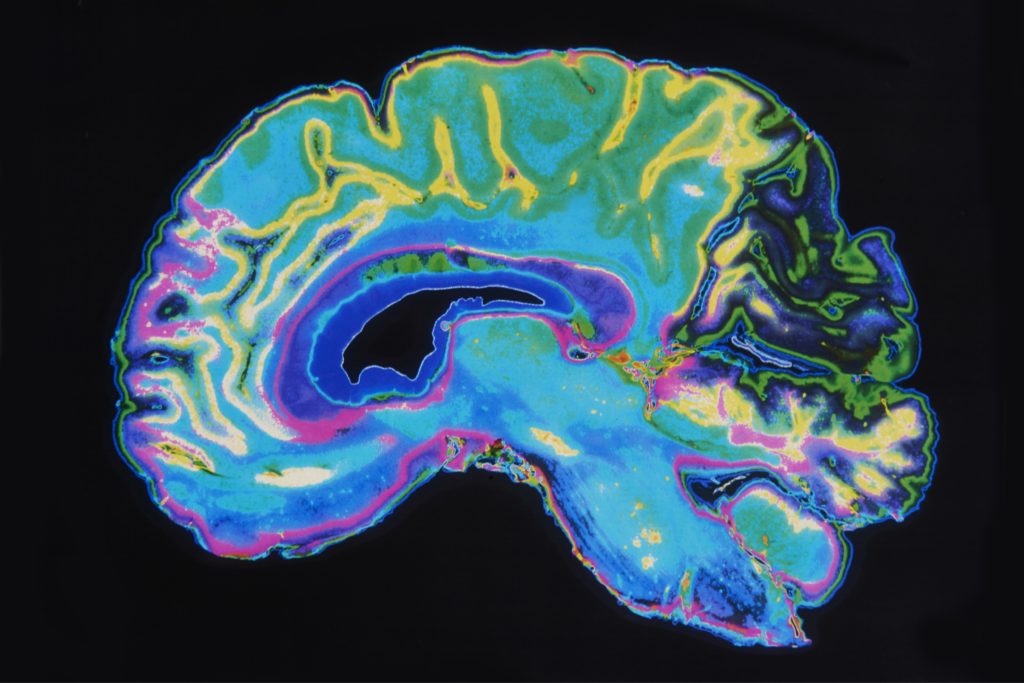Quick Hits
Daily brief research updates from the cognitive sciences

Teenagers’ brains are different – as many parents of teenagers notice quite intensely!
Adolescence is a critical period – we all know that. And the brain also goes through a number of changes, some of them well documented and others not. Adolescence is also a time when major mental illnesses such as depression and schizophrenia emerge but it also when risk-taking behaviour peaks.
Researchers at the University of Pittsburgh have now found compelling evidence of how this happens.
To do this the researchers around Maria Perica zoomed in on the prefrontal cortex of the brain. This region of the brain, at the front, your forehead, is considered the executive centre of the brain. The part that exerts control over other parts but also coordinates and consolidates lots of information. It is also an area involved heavily in decision-making.
Perica et al., used advanced imaging that gives double the resolution of normal imaging and compared the balance of two neurotransmitters in the fontal cortex of 144 adolescent and adult participants.
They specifically focused on the two main transmitters Glutamate and GABA. Glutamate is the brain’s man excitatory transmitter triggering action but also therefore involved in brain plasticity, triggering growth of the brain. GABA is the brain’s primary inhibitory transmitter, dampening and inhibiting transmission in the brain (also an essential function).
What did the researchers find?
They saw that the balance of glutamate increased through childhood and into adolescence before levelling off as adulthood approaches.
This suggest that this is putting the brain into a period of increased excitation and increased plasticity – the brain is at a stage of being able to sculpt and reform and also focus on things it may need in adulthood. This is also why exploratory but also risky behaviour increase at this time. Which as parents of teenagers know can also be challenging to deal with. But this is just nature preparing itself for adulthood.
There are also large risks such as the above-mentioned increased risk of mental illness.
This once again shows that teenagers behaviours are not just some strange psychological phenomenon but driven by a biological critical period of brain reorganisation – sometimes for the worse but mostly for the good.

Andy Habermacher
Andy is author of leading brains Review, Neuroleadership, and multiple other books. He has been intensively involved in writing and research into neuroleadership and is considered one of Europe’s leading experts. He is also a well-known public speaker, speaking on the brain and human behaviour.
Andy is also a masters athlete (middle distance running) and competes regularly at international competitions (and holds a few national records in his age category).
References
Maria I. Perica, Finnegan J. Calabro, Bart Larsen, Will Foran, Victor E. Yushmanov, Hoby Hetherington, Brenden Tervo-Clemmens, Chan-Hong Moon, Beatriz Luna.
Development of frontal GABA and glutamate supports excitation/inhibition balance from adolescence into adulthood.
Progress in Neurobiology, 2022; 219: 102370
DOI: 10.1016/j.pneurobio.2022.102370
More Quick Hits
When Cognitive Games Do Make You Smarter
Quick HitsDaily brief research updates from the cognitive sciences ognitive games have been around for many years now – the first wave of popularity came with Nintendo’s “brain jogging” almost two decades ago now. These games have claimed that they...
How Walking Makes Some People “Super Taskers”
Quick HitsDaily brief research updates from the cognitive sciences hose of you who have followed my writing will know that I have reported regularly on the amazing benefits of exercise and walking on the brain, body, and cognition. However, though...
Older People are Better at Responding to Distress
Quick HitsDaily brief research updates from the cognitive sciences e may have some cliched ideas of older people like the grumpy or angry old man, or woman (but it is often a man). However, research continually shows the opposite. Namely that...
Guided Play Highly Effective for Learning in Children
Quick HitsDaily brief research updates from the cognitive sciences ood news for some and bad news for traditionalists in education. Some believe that starting education early and using classical and traditional learning activities is the best way...
Childhood Fitness Improves Mid-Life Cognition
Quick HitsDaily brief research updates from the cognitive sciences always find these long-term studies fascinating. Imagine launching study and not knowing what the outcomes will be for another 30 years! This is precisely what this study did. It...
The Truth of “Work Hard, Play Hard”
Quick HitsDaily brief research updates from the cognitive sciences e all know the phrase “work hard, play hard” and this drew my attention when I stumbled across some research actually looking into this - and whether this is a good thing or bad...






